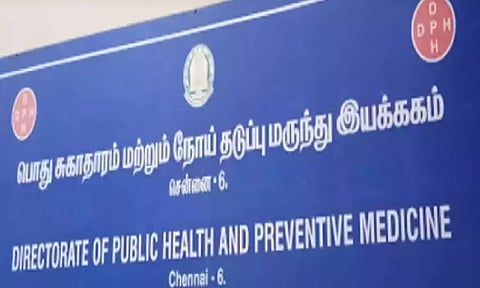

CHENNAI: With cases of bird flu being reported in Alappuzha in Kerala, the Directorate of Public Health and Preventive Medicine has issued guidelines on prevention of Avian influenza transmission to human beings.
Infected poultry and wild birds can transmit the bird flu virus to susceptible poultry and human beings through contaminated poultry products like poultry secretions, excretions, carcasses, etc.,
After one human case of Avian Influenza was reported in the USA, it is noted that the disease is spreading to animals also, apart from birds.
As per the guidelines, District Health Officers to the bordering districts of Kerala and districts with poultry farming are instructed to strengthen the surveillance of influenza like illness and data to be entered in IHIP-IDSP portal on daily basis.
As part of preventive measures, the medical officers and health staff at Primary Health Centers should be given orientation on the signs, symptoms and management.
The Rapid Response Team should also be trained in co-ordination with the Animal Husbandry Department.
The officers have been instructed to enhance the surveillance of Flu-like illness in all government and private hospitals. The samples of suspected persons
of Bird Flu may be collected using PPE kits and sent to National Institute of Virology, Pune through the State Public Health Laboratory, Chennai.
The monitoring for signs and symptoms of acute respiratory illness should be done after their first exposure and for 10 days after their last exposure.
Meanwhile, the preparedness of hospitals to handle such cases should be monitored, while coordinating closely with the Animal Husbandry Department and the district administration. The medical para medical teams for each check post as and when requested by the Animal Husbandry Department should also be deputed.
In case of reports of Bird fall, which is death of crows, ducks, chickens and other birds and sickness in birds noticed by the field staff, the District Health Officers should be notified immediately and coordinate with the Joint Director at the District level.
Management of human bird flu cases
For the management of the bird flu cases, the health-care workers with PPE or contact with a patient at more than one meter distance, cullers of non-infected birds persons and with PPE handling sick or dead birds or contaminated environment, are at a low risk and do not require chemoprophylaxis.
The persons handling sick birds or decontaminating the environment without PPE are at moderate risk.
The individuals in direct exposure to sick or dead birds infected with Avian Influenza or healthcare workers including laboratory personnel in direct contact with patient without PPE are also at a moderate risk of the flu. As per the guidelines, they should be given Oseltamivir 75 mg tablet once daily for 7-10 days.
People sharing household with or caring for a patient or in unprotected close with the patient at less than 1 meter of distance have a high risk of transmission. They should also be given Oseltamivir 75 mg tablet once daily for 7-10 days.
The patients can be given symptomatic and supportive therapy in the form of IV fluids, oxygen therapy or ventilator support. Antibiotics can be given for secondary bacterial infections and vasopressors for the management of shock.
The guidelines state that paracetamol or ibuprofen is prescribed for fever, myalgia and headache. Patients with signs of tachypnea, dyspnea, respiratory distress and oxygen saturation less than 90 percent should be treated with nasal oxygen.
Patients with severe pneumonia and acute respiratory failure with oxygen saturation less than 90 percent must be supported with mechanical ventilation. They should also be given adequate hydration, electrolyte balance and nutrition.